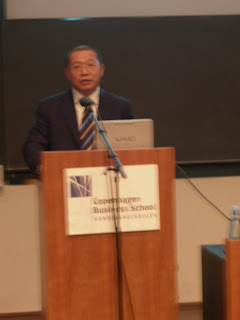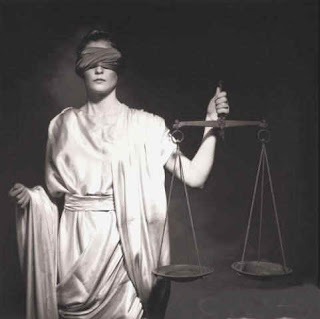Naser Khader of Liberal Alliance responds to Margrethe Vestager's democratic flicker remark
About a week ago my blog reported the views of the leader of The Danish Social Liberal Party (R), Ms. Margrethe Vestager. One of her critique points was that the climate in the parliamentary co-operation had worsened during the so-called blue block government period of the past seven years. In Denmark blue means Right. At the same time invalidating the possibility of a split in the Social Liberals as caused by the succes of the blue block. Read the blog segment here:
http://paradoxicalnews.blogspot.com/2008/10/democratic-flicker.html
Today, Mr. Naser Khader of Liberal Alliance (Y) responds. He contacted me to give his view, and according to him the 'democratic flicker' has indeed worsened during the past seven years. But he also points to the former coalition of The Social Democrats (S) and The Danish Social Liberal Party (R), claiming they didn't always assure cross-parliamentary co-operation. He should know. Being a member of The Social Liberals at the time. He also points to the domination of The Danish People's Party (O) as the cause of the growing 'democratic flicker':
"Compared to earlier I would say yes, there is more of it. The Danish People’s Party often makes it a condition that no other party can participate. They want The Liberals and The Conservatives to themselves," Mr. Khader notes with a mild political jealousy.
He further criticises what he calls Social-Democratism - a sort of growing 'muddle in the middle'. Both sides of the political spectrum are guilty of it, trying to force themselves towards the centre of Danish politics. He criticises both sides for waivering.
"We can’t see the big difference between the blue and the red block. Everything is Social-Democratism. Fogh has turned Social Democratic, and The Social Democrats always try to say the same as him," according to Mr. Khader.
As far as the question of a possible split within The Danish Social Liberal Party, Mr. Naser Khader disagrees with Ms. Margrethe Vestager. I asked him,
Could you see first New Alliance and later Liberal Alliance as a political split in the original Social Liberal group?
"Yes, I would say about two thirds belonged to the red block and one third to the blue. Samuelsen, myself and a couple of others belonged to the wing of the party, who wanted co-operation with The Liberals and The Conservatives. We agree more with them on issues like reforms and in tax questions – more so, than we agree with The Socialists, The Red-Green Alliance and The Social Democrats. This is the wing we like to call The Realists – meaning, ‘let’s get influence where we can’," Mr. Khader responds.
Paradoxical, since he used to be a part of the very center himself. Before turning more Liberal than The Liberals. In particular, Mr. Khader criticises The Social Democrats for defection during this year's current budget negociations for 2009 - first eagerly wanting to assure higher maintenance allowance during the early period of unemployment (later falling), then jumping ship once the financial crisis was known.
You pointed to Mr. Anders Fogh Rasmussen for prime minister, do you still do that?
"Yes of course. We do that unambiguously. We can’t see any alternative. We do disagree with much of his politics, but we would rather have Lars Løkke for minister of finance than Ole Sohn,” he stresses referring to Mr. Ole Sohn from The Socialist People's Party.
Stressing his position of being a non-Socialist, Liberal belonging to the blue block, he would continue to point to the next Liberal prime minister, possibly the current minister of finance (UK Exchequer, US Treasure), Mr. Lars Løkke Rasmussen.
In case of The Conservatives growing further, could you imagine pointing to a Conservative prime minister?
"Danish politics is in constant change, and then we would have to relate to that. But for now, The Liberals is the major party and will continue to be so for some time ahead, so we will point to the major party on the Right wing," Mr. Naser Khader declines defining their political line any further. Well, perhaps being a Realist should be taken literally.





















